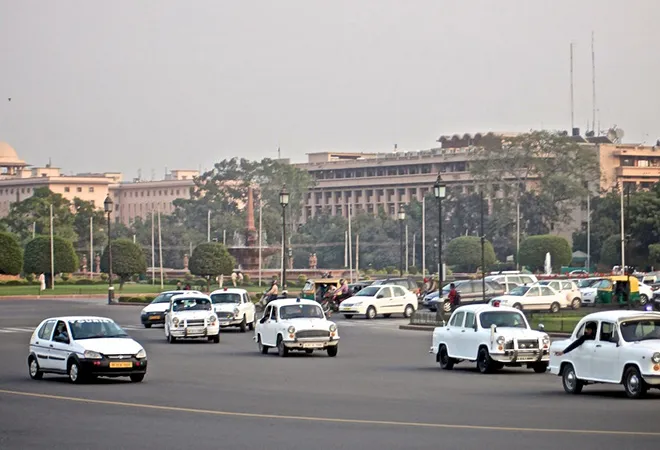-
CENTRES
Progammes & Centres
Location
Finance Commissions decide the distribution taxes between the centre and the states, and is the key financial lever determining the federal structure of the Indian economy.

Image Source: Savio Sebastian — Flickr/CC BY 2.0
The following is a chapter from the book 70 Policies that Shaped India: 1947 to 2017, Independence to $2.5 Trillion.
Find the book here.
Formed on 16 May 1951 under an Act of Parliament, <1> Finance Commissions — constituted every five years, there have been 14 so far, with the 15th underway — derive their authority from Article 280 of the Constitution <2> to decide the distribution taxes between the centre and the states, and is the key financial lever determining the federal structure of the Indian economy. It makes recommendations about how central levies collected by states, taxes and duties levied and collected by the centre but assigned in whole to the states, and grants and loans are distributed. In its last set of recommendations, the 14th Finance Commission, headed by former RBI Governor Y.V. Reddy, raised the share of states in taxes by 10 percentage points to 42 percent. <3> It also said that the FRBM Act <4> needs to be amended and made more specific about targets relaxation. <5> “The challenge is to design a basic incentive-compatible framework for the Union and State governments to hold each other accountable over agreed fiscal targets,” the report stated. <6> However, even though Finance Commission is the Constitutional authority on centre–state distribution of financial resources, the Planning Commission <7> had eroded its powers. “
<1> Finance Commission (Miscellaneous Provisions) Act, 1951, Ministry of Law and Justice, Government of India, 16 May 1951.
<2> Constitution of India, Article 280, Ministry of Law and Justice, Government of India, 9 November 2015.
<3> Report of the Fourteenth Finance Commission, 5 December 2014, 90, accessed 29 December 2017.
<4> The Fiscal Responsibility and Budget Management Act, 2003, Ministry of Law and Justice, Government of India, 26 August 2003.
<5> Ibid., 197–203.
<6> Ibid., Report of the Fourteenth Finance Commission, 197, accessed 29 December 2017.
<7> Chapter 6: Planning Commission
<8> Report of the Third Finance Commission, Page 35, Finance Commission of India, 14 December 1961, accessed 29 December 2017.
<9> Report of the Second Finance Commission, Finance Commission of India, 30 September 1957, 13, accessed 29 December 2017.
<10> “Planning Commission or Super-Cabinet,” Economic and Political Weekly, 25 March 1950, accessed 29 December 2017.
<11> Notification, The Gazette of India, Ministry of Finance (Department of Economic Affairs), Government of India, 27 November 2017, accessed 29 December 2017.
The views expressed above belong to the author(s). ORF research and analyses now available on Telegram! Click here to access our curated content — blogs, longforms and interviews.

Gautam Chikermane is Vice President at Observer Research Foundation, New Delhi. His areas of research are grand strategy, economics, and foreign policy. He speaks to ...
Read More +